|
Books Should Be Free Loyal Books Free Public Domain Audiobooks & eBook Downloads |
|
|
Books Should Be Free Loyal Books Free Public Domain Audiobooks & eBook Downloads |
|
History Books |
|---|
|
Book type:
Sort by:
View by:
|
By: Richard Jefferies (1848-1887) | |
|---|---|
 Field and Hedgerow Being the Last Essays of Richard Jefferies
Field and Hedgerow Being the Last Essays of Richard Jefferies
| |
 Nature Near London
Nature Near London
| |
By: George B. Grinnell | |
|---|---|
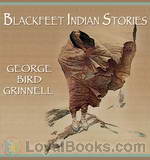 Blackfeet Indian Stories
Blackfeet Indian Stories
The Blackfeet were hunters, travelling from place to place on foot. They used implements of stone, wood, or bone, wore clothing made of skins, and lived in tents covered by hides. Dogs, their only tame animals, were used as beasts of burden to carry small packs and drag light loads. The stories here told come down to us from very ancient times. Grandfathers have told them to their grandchildren, and these again to their grandchildren, and so from mouth to mouth, through many generations, they have reached our time. (Sibella Denton) | |
By: Giacomo Casanova (1725-1798) | |
|---|---|
 The Memoirs of Jacques Casanova
The Memoirs of Jacques Casanova
This is the first of five volumes. – Giacomo Casanova (1725 in Venice – 1798 in Dux, Bohemia, now Duchcov, Czech Republic) was a famous Venetian adventurer, writer, and womanizer. He used charm, guile, threats, intimidation, and aggression, when necessary, to conquer women, sometimes leaving behind children or debt. In his autobiography Histoire de ma vie (Story of My Life), regarded as one of the most authentic sources of the customs and norms of European social life during the 18th century, he mentions 122 women with whom he had sex... | |
 Memoirs of Casanova — Volume 01: Childhood
Memoirs of Casanova — Volume 01: Childhood
| |
 Quotes and Images from the Memoirs of Jacques Casanova de Seingalt
Quotes and Images from the Memoirs of Jacques Casanova de Seingalt
| |
By: Elizabeth Davis Bancroft (1803-1886) | |
|---|---|
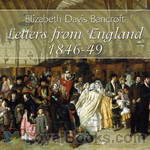 Letters from England, 1846-1849
Letters from England, 1846-1849
Elizabeth Bancroft went to England with her husband, historian George Bancroft, for three of the most dynamicy years in European hstory. As Ambassador to England from the United States, George moved in the highest circles. In his wife’s letters to their sons, her uncle, her brother, and Mrs. Polk (the President’s wife), we see glimpses not only of early Victorian English life, but also of Queen Victoria herself! Mrs. Bancroft speaks of dinners with Benjamin Disraeli, visits to Wordsworth, weekends in the country with Louis Napolean and Sir Robert Peel with such matter of fact aplomb that one cannot help being impressed. | |
By: Robert Michael Ballantyne (1825-1894) | |
|---|---|
 The Coral Island - A Tale of the Pacific Ocean
The Coral Island - A Tale of the Pacific Ocean
Ralph Rover is a traveler at heart, and has always dreamed of shipping out to the South Seas islands. He finally convinces his aging parents to let him go and find his way in the world. But the islands that Ralph finds are not as idyllic as in his dreams. Shipwrecked on a large, uninhabited island, Ralph and his fellow survivors, Jim and Peterkin, discover a world of hostile natives and villainous pirates. Danger, high adventure, and wonders of the sea greet them at every turn. When all seems lost, they find help from an unexpected source. | |
By: James Norman Hall | |
|---|---|
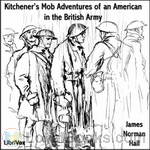 Kitchener's Mob Adventures of an American in the British Army
Kitchener's Mob Adventures of an American in the British Army
“Pvt Ryan”, “Platoon”, “A Soldier’s Home”, “Kitchener’s Mob”. These aren’t happy stories, they are about the experience of War. War at different times, and although modern warfare may be more sanitized, the adventure, the horror, the emotions don’t change. James Norman Hall has been there. He “Saw the Elephant”, and his portrayal of his WWI experience is a tribute to those ordinary people who do such extraordinary things. Those who have served will identify with at least some part if not all of this book, be it the rigors of training, the camaraderie, or possibly those memories that try as you may, you can never make go away... | |
By: Princess Der Ling | |
|---|---|
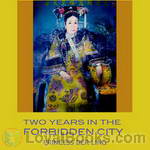 Two Years in the Forbidden City
Two Years in the Forbidden City
THE author of the following narrative has peculiar qualifications for her task. She is a daughter of Lord Yu Keng, a member of the Manchu White Banner Corps, and one of the most advanced and progressive Chinese officials of his generation. she became First Lady-in-Waiting to the Empress Dowager, and while serving at the Court in that capacity she received the impressions which provide the subject-matter of this book. Her opportunity to observe and estimate the characteristics of the remarkable woman who ruled China for so long was unique, and her narrative throws a new light on one of the most extraordinary personalities of modern times... | |
By: John Greenleaf Whittier (1807-1892) | |
|---|---|
 Poems in Wartime From Volume III., the Works of Whittier: Anti-Slavery Poems and Songs of Labor and Reform
Poems in Wartime From Volume III., the Works of Whittier: Anti-Slavery Poems and Songs of Labor and Reform
| |
By: Gaius Suetonius Tranquillus (c75 - c160 AD) | |
|---|---|
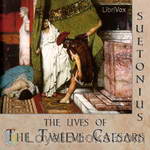 The Lives of the Twelve Caesars
The Lives of the Twelve Caesars
The Twelve Caesars is a set of twelve biographies of Julius Caesar and the first 11 emperors of the Roman Empire. The work was written in 121 during the reign of the emperor Hadrian, while Suetonius was Hadrian’s personal secretary. On the Life of the Caesars concentrates on the acts and personalities of the Julio-Claudians and their immediate successors. Together with Tacitus’ Annals, this work is a major source for the historical details in Robert Graves’ novels “I Claudius” and “Claudius the God”. | |
By: James Otis (1848-1912) | |
|---|---|
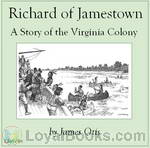 Richard of Jamestown: A Story of the Virginia Colony
Richard of Jamestown: A Story of the Virginia Colony
Richard of Jamestown by James Otis was written for children with the purpose to show them the daily home life of the Virginia colonists. It is written from the viewpoint of a young boy named Richard Mutton. | |
 The Boys of '98
The Boys of '98
| |
By: Louis Hémon (1880-1913) | |
|---|---|
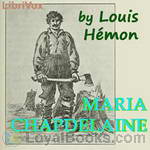 Maria Chapdelaine
Maria Chapdelaine
Maria Chapdelaine is one of the most famous French Canadian novels. It is the love story of Maria Chapdelaine, daughter of a peasant family in the Saguenay-Lac-St-Jean region of Quebec, in the 1900s. It is often seen as an allegory of the French Canadian people, describing simple joys and great tragedies, the bonds of family, the importance of faith, and the strength of body and spirit needed to endure the harshness of life in Canada’s northern wilderness. | |
By: Walter Besant (1836-1901) | |
|---|---|
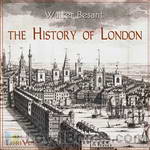 The History of London
The History of London
Walter Besant was a novelist and historian, and his topographical and historical writings, ranging from prehistoric times to the nineteenth century, were probably best known through the detailed 10-volume Survey of London published after his death. This earlier single volume covers, in less depth, the whole period from prehistory until the 19th century. The book appears originally to have been written for boys, and, indeed, the chapters are called “Lessons”. However, it is a very readable history and provides a fascinating insight into both London’s past and the government of the City at the time the book was written (1894). | |
By: Thomas Carlyle | |
|---|---|
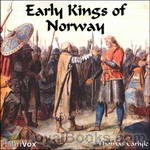 Early Kings of Norway
Early Kings of Norway
“The Icelanders, in their long winter, had a great habit of writing; and were, and still are, excellent in penmanship. It is to this fact, that any little history there is of the Norse Kings and their old tragedies, crimes and heroisms, is almost all due. The Icelanders, it seems, not only made beautiful letters on their paper or parchment, but were laudably observant and desirous of accuracy; and have left us such a collection of narratives (Sagas, literally “Says”) as, for quantity and quality, is unexampled among rude nations... | |
 Latter-Day Pamphlets
Latter-Day Pamphlets
| |
 History of Friedrich II of Prussia
History of Friedrich II of Prussia
| |
By: General Sir John Miller Adye (1819-1900) | |
|---|---|
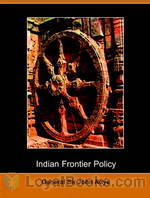 Indian Frontier Policy, an Historical Sketch
Indian Frontier Policy, an Historical Sketch
“The subject of our policy on the North-West frontier of India is one of great importance, as affecting the general welfare of our Eastern Empire, and is specially interesting at the present time, when military operations on a considerable scale are being conducted against a combination of the independent tribes along the frontier. It must be understood that the present condition of affairs is no mere sudden outbreak on the part of our turbulent neighbours. Its causes lie far deeper, and are the consequences of events in bygone years”. (From the author’s Preface, 1897). | |
By: Leander Stillwell (1843-1934) | |
|---|---|
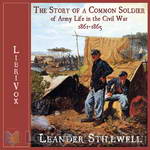 The Story of a Common Soldier of Army Life in the Civil War, 1861-1865
The Story of a Common Soldier of Army Life in the Civil War, 1861-1865
Leander Stillwell was an 18-year-old Illinois farm boy, living with his family in a log cabin, when the U.S. Civil War broke out. Stillwell felt a duty “to help save the Nation;” but, as with many other young men, his Patriotism was tinged with bravura: “the idea of staying at home and turning over senseless clods on the farm with the cannon thundering so close at hand . . . was simply intolerable.” Stillwell volunteered for the 61st Illinois Infantry in January 1861. His youthful enthusiasm for the soldier’s life was soon tempered at Shiloh, where he first “saw a gun fired in anger,” and “saw a man die a violent death... | |
By: Roald Amundsen (1872-1928) | |
|---|---|
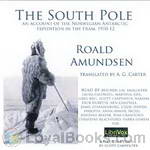 The South Pole; an account of the Norwegian Antarctic expedition in the Fram, 1910-12
The South Pole; an account of the Norwegian Antarctic expedition in the Fram, 1910-12
In contrast to Scott’s South Pole expedition, Amundsen’s expedition benefited from good equipment, appropriate clothing, and a fundamentally different primary task (Amundsen did no surveying on his route south and is known to have taken only two photographs) Amundsen had a better understanding of dogs and their handling, and he used of skis more effectively. He pioneered an entirely new route to the Pole and they returned. In Amundsen’s own words: “Victory awaits him who has everything in order — luck, people call it... | |
By: Thomas Wentworth Higginson | |
|---|---|
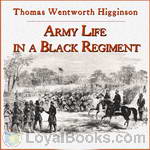 Army Life in a Black Regiment
Army Life in a Black Regiment
These pages record some of the adventures of the First South Carolina Volunteers, the first slave regiment mustered into the service of the United States during the late civil war. It was, indeed, the first colored regiment of any kind so mustered, except a portion of the troops raised by Major-General Butler at New Orleans. These scarcely belonged to the same class, however, being recruited from the free colored population of that city, a comparatively self-reliant and educated race. (From the text) | |
 Oldport Days
Oldport Days
| |
By: Booker T. Washington (1856-1915) | |
|---|---|
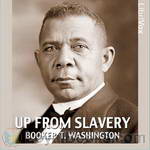 Up From Slavery
Up From Slavery
Up From Slavery is the 1901 autobiography of Booker T. Washington detailing his slow and steady rise from a slave child during the Civil War, to the difficulties and obstacles he overcame to get an education at the new Hampton University, to his work establishing vocational schools—most notably the Tuskegee Institute in Alabama—to help black people and other disadvantaged minorities learn useful, marketable skills and work to pull themselves, as a race, up by the bootstraps. He reflects on the generosity of both teachers and philanthropists who helped in educating blacks and native Americans... | |
By: John Burroughs (1837-1921) | |
|---|---|
 Birds and Bees, Sharp Eyes, and Other Papers
Birds and Bees, Sharp Eyes, and Other Papers
Probably no other American writer has a greater sympathy with, and a keener enjoyment of, country life in all its phases—farming, camping, fishing, walking—than has John Burroughs. His books are redolent of the soil, and have such "freshness and primal sweetness," that we need not be told that the pleasure he gets from his walks and excursions is by no means over when he steps inside his doors again. As he tells us on more than one occasion, he finds he can get much more out of his outdoor experiences by thinking them over, and writing them out afterwards... | |
 Under the Maples
Under the Maples
| |
 Ways of Nature
Ways of Nature
| |
 Winter Sunshine
Winter Sunshine
| |
 Wake-Robin
Wake-Robin
| |
 Camping with President Roosevelt
Camping with President Roosevelt
| |
 The Wit of a Duck and Other Papers
The Wit of a Duck and Other Papers
| |